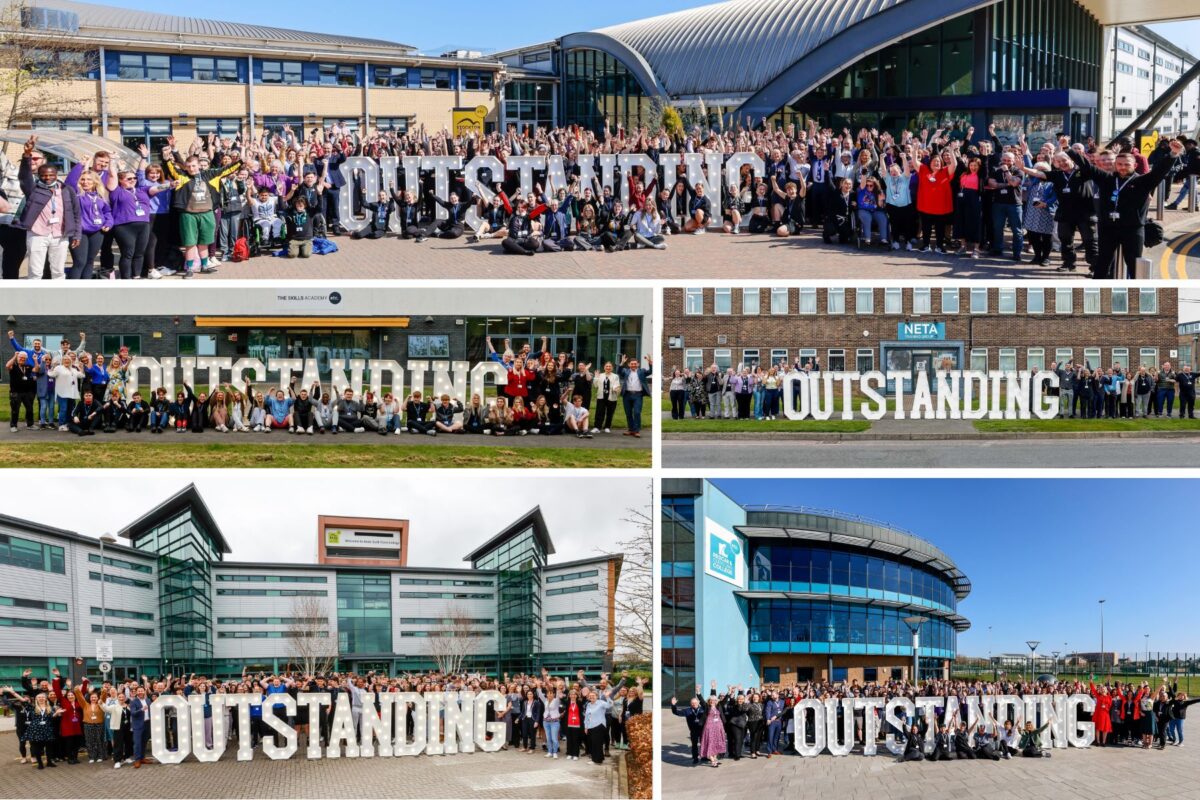What I’ve Learned As A Woman In Tech

In this article, Franziska Ströbel discusses her first-hand experience as a woman in the technology industry. Franziska offers some advice for women looking to pursue a career in tech, and explores some of the challenges and issues related to gender which exist in the industry.
Over the last decade, a huge amount has been done to support young children in acquiring digital skills. Accessibility to high-quality STEM learning is constantly improving, supported by a hands-on approach to teaching. As for young women, things are gradually changing too. Schools, colleges and education ministers are working hard to chip away at stereotypes and increase opportunities for women.
Yet, while a large amount of emphasis is put on encouraging younger women to pursue a career in technology, less focus is being put on the reality of making it in the industry. Evidence of this can be found in reports that half of women in tech drop out by the age of 35. One of the issues related to this, is that sharing experiences and overcoming challenges is extremely tough when only a small proportion of people are in the same boat.
Navigating a career in technology is no mean feat either, and ensuring that there is an infrastructure that supports women and minorities is vital. With this in mind, here are my top-line experiences as a female engineer working in the technology industry.
There’s still a systemic problem with progression
As already highlighted, the challenge these days isn’t as much getting into tech as it is progressing past the junior and mid-levels. First it’s about getting to mid-level, then to senior and eventually to Director. It’s a recurring theme, and one that contributes to women dropping out of engineering entirely at some point along the way.
Interestingly, there is evidence that gender bias has a worrying part to play in the stunting of career growth. Studies have shown that women are judged more harshly in code reviews if the gender is known to the reviewer, however women’s code gets approved faster if our gender isn’t known. While it’s hard to measure, it’s important to raise awareness of the conscious and subconscious bias that influences performance analysis and reviews.
It can also be argued that expectations related to how women should behave in the workplace, contributes to women being held back from promotions. Generalisations that women are perhaps ‘quiet team players’, or kind and caregiver types, are assumptions that incertain industries detract from women being seen as professionals and leaders.
Women shouldn’t settle for less money
Remuneration is another area of contention when it comes to being a woman in tech. Increasingly, companies are being encouraged to be more transparent about wages. This means it is becoming easier to establish when you are being underpaid for a service or position. To this end, it is worth remembering that salaries are always negotiable. Of course, it takes courage and confidence to ask for what you want, but it is a necessity for anyone with ambition.
Doing research is a great way to strengthen your hand when going through the difficult conversations about pay. If possible, it’s worth establishing what male counterparts are typically earning. Success in the workplace is as much about being able to fund the process, as it is being able to do the work itself.
As you climb the ladder, the responsibility and stress of work naturally tends to rise. Over time, the impact of being financially undervalued becomes harder to ignore and ultimately can lead to throwing in the towel. Be honest with yourself, and if you don’t think you’re getting a reasonable deal then don’t be afraid to look elsewhere.
Failing with pride means taking it in your stride
Learning how to be an engineer is a challenging process. It takes time, dedication, and lots of mistakes. Overcoming failure is part and parcel of the job, the good thing is that mistakes help you know what to avoid in the future. Especially in the technology industry, it is always important to be resilient and keep things in perspective. Sometimes due to the pace of the job, it’s easy to forget the progress and success you’ve achieved. Imposter syndrome is another common demon, so it’s important to spend time with colleagues and friends that can give you advice and encouragement.
Digesting and applying feedback is also part of the learning curve. Generally, those who can separate themselves from the emotional aspect of feedback benefit the most from it. Of course, depending on what the feedback is, this can sometimes be easier said than done. However, it is certainly a good strategy to embrace feedback and see it as the stepping stone to your success.
Stay curious, be supportive of your fellow women in engineering and do your best to include and learn from them. Look for mentors that are either at your own level or slightly above. Lastly, make sure you give yourself a break. Things can get overwhelming when you’re starting out, and getting burnt out only exacerbates things. Practice taking time to reflect and focus on your health and wellbeing. Doing this will stand you in good stead for future challenges.
We need more role models, and fewer gender roles
It’s worth saying that working in technology is one of the most enjoyable and exciting careers you can imagine. Moreover, it’s a highly sought after sector with a constant demand for fresh talent. According to Microsoft, globally, there will be 149 million new jobs in data, software, AI and cyber by 2025. Alongside this, it is expected 5.8 million newly skilled graduates will qualify for these roles, of which 20% are expected to be women.
Of course, it would be great to see higher numbers of women anticipated for these roles, however progress is promising. Going forward, there is a huge opportunity to celebrate and promote the women and minorities that are given the chance to reach their potential. These stories will serve as inspiration for young women to take courses and pursue careers in technology.
When it comes to tackling gender roles, there is still a lot to do. Even today, stereotypes related to gender are ingrained in society. As for education, a lot of good work has been done to mitigate these attitudes, however students that choose STEM related courses still lean heavily towards males – with a 2021 analysis showing only 15% of girls selecting computer science.
Last but not least, there is a misconception that not being good at mathematics means that certain careers are out of reach for you. This was something I experienced first hand, growing up with learning difficulties made subjects like mathematics a real challenge. Gentle suggestions about taking up subjects more in line with a career in medicine and law were dropped into conversation.
School became a lot easier in my later teenage years, so much so that I eventually transferred to a Computer Engineering school. It was a real turning point. Ultimately, being able to keep an open mind and not disregard certain subjects entirely, was key to eventually pursuing computer science.
Ultimately, if we want more diversity, we have to be intentional about extending opportunities and make it a priority to actively empower marginalised people towards leadership positions.
By Franziska Ströbel, Engineering Manager at Babbel
Franziska Ströbel, is an Engineering Manager at Babbel. She joined in 2023, and has several years experience working as a mobile developer. Franziska is also a member of Babbel’s Femgineering Community of Practice, a women-centric community aimed at supporting and enhancing the role and reach of women in Babbel’s tech teams.











Responses